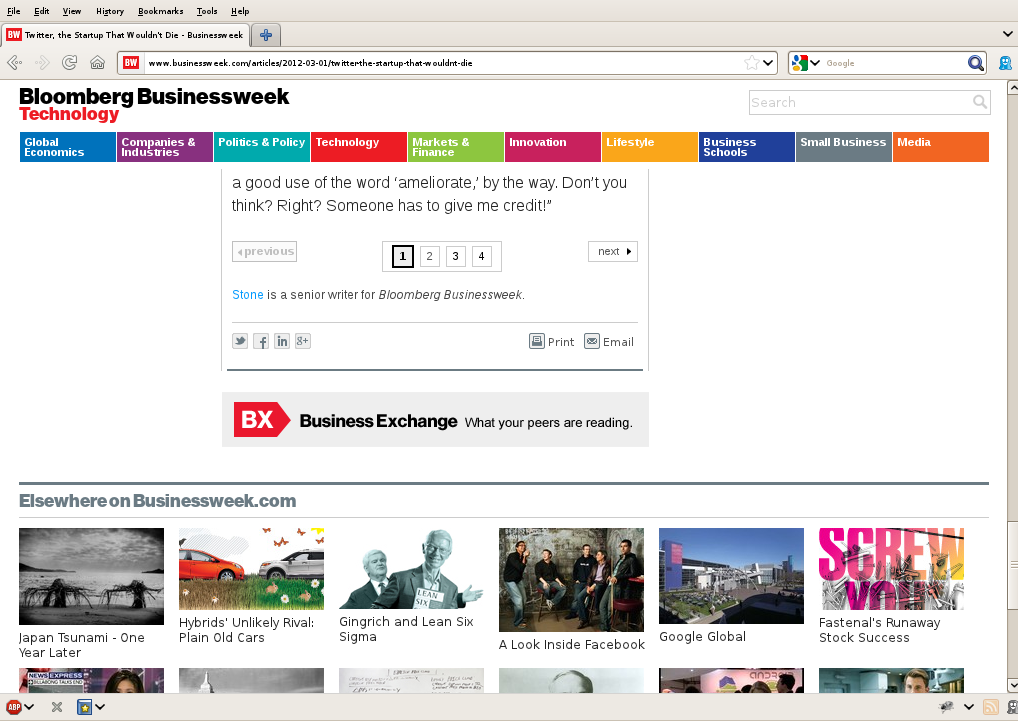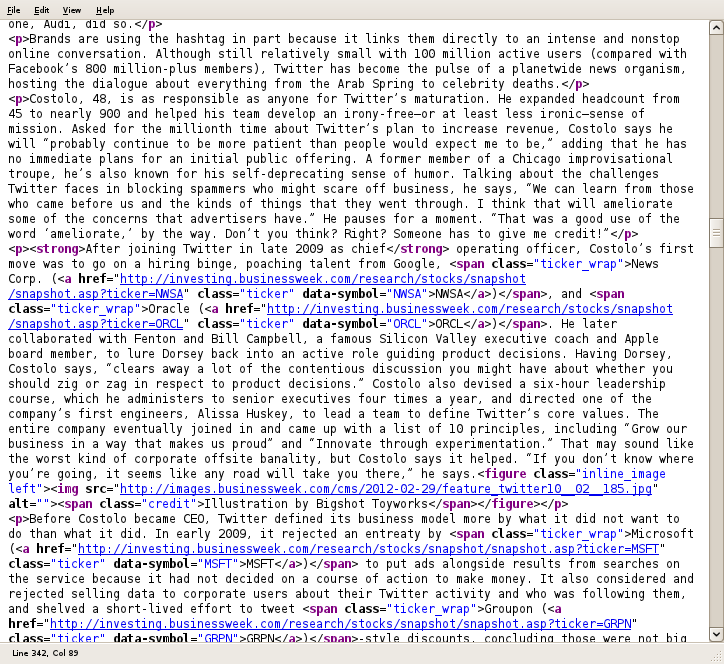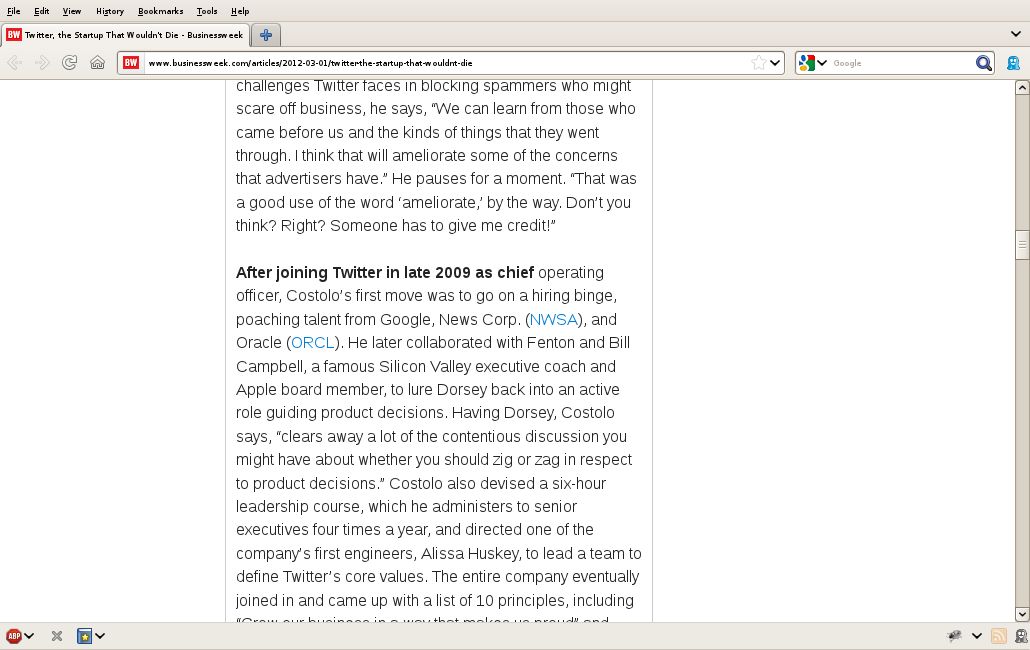Artificial pagination of articles on news sites - thanks, but no thanks
TL; DR: the bazillionth whinge about content sites with paginated articles, but picking on businessweek.com as they seem to be doing something particularly iniquitous, that I haven't seen before. (Although it could just be that I'm unobservant or behind-the-times, and that this is old news.)
I was in a branch of W H Smith yesterday, and had a quick flick through the latest issue of Bloomberg Business Week magazine. As usual, there were a number of articles that looked like they'd be worth reading, so I handed over £3.30 for the dead tree edition made a mental note to visit businessweek.com later to digest those articles properly.
I got round to visiting the site just now, and it looked like they might have had a minor redesign since I last visited - nothing particularly outrageous though. The first article I checked was this week's cover story about Twitter. Reading down the first page, it was quite a good piece, if not telling me anything I hadn't previously been aware of.
As I scrolled down to the bottom of the page, there was a pagination nav that indicated the article had been split into four pages. As I clicked on "next >" to go to the following page, I was surprised about how quickly the second page appeared - suspiciously quick, in fact.

Being a nosey bugger, I viewed the HTML source of the page, and found that in fact, all of the article content is present in the "first" page, and it isn't even sectionalized in any way.

It wasn't a big surprise to me to find out that if I turned off JavaScript, my browser would now show the whole story on a single page, with no pagination controls visible anywhere. On my 1050x1680 portrait display, the full story runs for 8 screens in Firefox, which doesn't strike me as especially long and in need of breaking up. (NB: I have Ghostery blocking Disqus comments in Firefox; when I viewed the regular paginated site in a browser, I found that just the first of the four pages ran to 6 screensworth, of which around 50% were the - mostly inane - Disqus user comments.)

I haven't bothered to check the site's JavaScript code, but I assume there's something that measures the height of the <p> elements, and once the height goes above a certain point, starts splitting/hiding them into pages, and inserts the page navigation controls.
Now, pagination of online content is a complicated subject, and I'm no UX guru, conversion wizard or SEO charlatan who can confidently spout chapter-and-verse about what you should or shouldn't do when building a content site. What I do know is that as a user, I don't like having to continually click-scroll-click-scroll-click-scroll to get through an article that could have easily been scrolled through. And I'm pretty sure I'm not alone.
The usual excuse for pagination is that it increases the number of page impressions or ads that can be shown, but I don't think that's valid here:
- As there's no new page being loaded when I click 'next', a page hit in the traditional sense isn't occurring. I'm sure there'll be some JavaScript analytics code sending something back to the server when I navigate to another page, but surely this could be done by handling onscroll events, similar to how people such as Twitter (ironically enough) implement infinite scrolling.
- The ad space on a long single page is pretty much the same as on multiple short pages, so the same number of ads could be run. Now, after viewing the story on BusinessWeek a few times, it looks very much like there are only a very small number of ads being repeated on each sub-page of the story, and having the same ads repeatedly shown on a longer single page would look pretty dumb, but this seems to me to be more a failure of their ad sales or syndication systems, than anything else.
- Most sites that use pagination - Ars Technica is the whipping boy that usually comes to mind - do at least keep up the pretence of having to download new content (whether by a traditional page load, or via Ajax), but this is the first time I've been aware of a site using JavaScript to IMHO actively make things worse for end users.